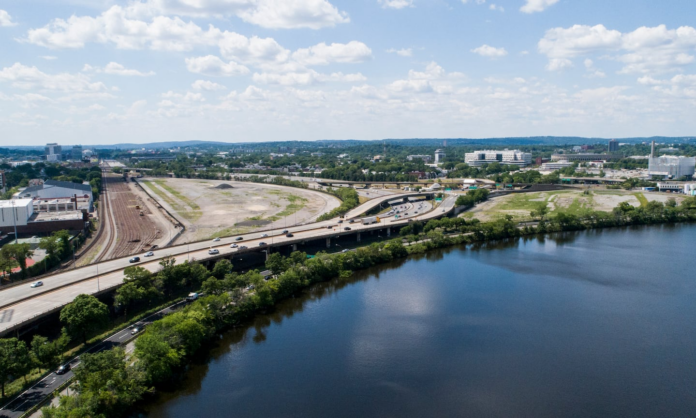This summer, Trump signed a spending bill that gutted federal funding to support a long anticipated megaproject to straighten out a bend in the Mass. Pike. The project, about a decade in the making, promises to reclaim open space, reinvigorate the Allston neighborhood, and expand and improve transit options.
Massachusetts was supposed to receive about $335 million from the federal government, about 17 percent of the project’s roughly $2 billion estimated price tag.. Trump’s One Big Beautiful Bill Act, signed into law July 4, scrapped any remaining “unobligated” grant money from the Neighborhood Access and Equity program, the federal initiative behind the project’s funding.
The state already has $8 million from the grant in hand. Trump’s signature erased the remaining, not-yet-obligated $327 million.
State transportation officials are taking stock of the situation.
Luisa Paiewonsky, MassDOT’s executive director of megaproject delivery, told the agency’s board of directors last week that the department is writing up an “in-depth cost analysis” of the project. Paiewonsky noted that tariffs and inflation may have also blown up the project’s expenses.
“First, we want to find out: how much does this project truly cost,” she said.
An “independent engineering review” will follow, to sort out how the project’s goals can be realized with the money still available.
“The Healey-Driscoll administration has committed to keep investing in this project,” Paiewonsky said. “We still have ample state funds that we will invest in this project.”
The city of Boston, advocacy groups, and state officials have urged MassDOT to knuckle down and fully realize the project’s goals — without needless delay.
“I do not want to see this project get into a position where it’s getting piecemealed and fragmented,” MassDOT board member Rick Dimino said after Paiewonsky’s presentation.
State transportation agencies across the country received a combined $1.2 billion from the Biden administration in November 2024 to “purchase American-made low carbon construction materials and products, including asphalt, glass, steel, and concrete for use in transportation projects.”
The program aimed, in part, to help reduce American industrial pollution, a major driver of climate change, while pumping cash into the country’s manufacturing sectors.
MassDOT raked in almost $32 million from the program. In August, the agency learned that the same federal spending bill that eliminated the remaining Allston Multimodal funding had also axed the low-carbon materials grant program, according to the state.
The. US Department of Transportation this month rescinded $20 million the Biden administration had awarded to Boston in 2022 to revamp three major Roxbury roadways.
The project, “Roxbury Resilient Corridors‚” promises to rebuild sections of Melnea Cass Boulevard, Malcolm X Boulevard, and Warren Street, in hopes of transforming the “wide, auto-centric thoroughfares” into pedestrian-friendly transit havens.
The Transportation Department sent a letter to the city on Sept. 9 stating that the federal agency is focused on “promoting traditional forms of energy and natural resources to the greatest extent possible,” among other priorities.
The Roxbury plan’s “inclusion of EV [electric vehicle] charging infrastructure” meant that it “no longer aligns with DOT priorities,” and, as such, wouldn’t receive funding, according to the letter.
The city would not say if and how the project would move forward without federal dollars.
The transportation department pulled another $2 million from Boston for a proposed redesign of Mattapan Square.
The city hopes to “reconnect two long-separated sides of Mattapan, as well as improve access to natural resources, and multimodal transportation networks,” according to a federal summary of the project.
The Trump administration said this month that the project’s plans to promote walking, cycling, and transit are “hostile to motor vehicles” and thus ran afoul of the agency’s efforts to reduce “traffic congestion by preserving or increasing roadway capacity” for cars.
A federal summary of the Mattapan project pegged its total estimated cost at $16 million. The city did not say if and how the project would move forward without federal dollars.
This is an evolving list. Know of an impacted project not yet on the list? Reach out to our transportation reporter.


